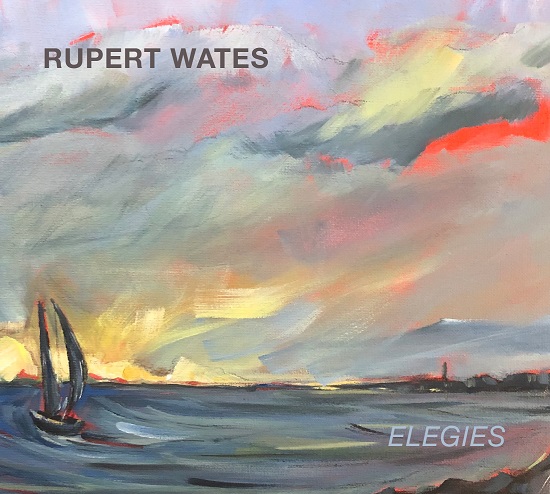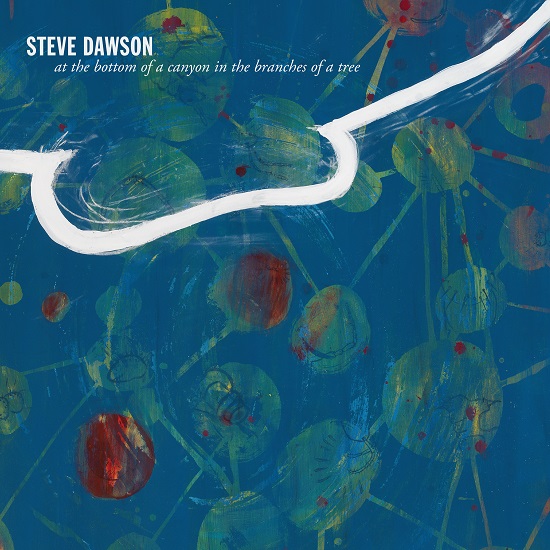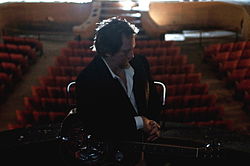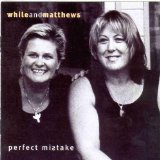
Bear with me while I get the nostalgia bit out of the way. There was a time in the 1970s when singer-songwriters from the folk world could become massive, making singles and albums that charted and selling out 2,000 capacity venues armed with only an acoustic guitar (usually a Gibson or a Martin at that time). It wasn’t just the odd one or two either; there was strength in depth as well. We had Ralph McTell, John Martyn and Richard Thompson (among others) in the UK and North American continent had Gordon Lightfoot, James Taylor and Neil Young (when he wasn’t squeezing squalls of feedback out of Old Black. Rupert Wates would have fitted in perfectly with his virtuoso finger-style guitar and mix of traditional and modern lyrical themes. Skip forward five decades and folk music’s a minority interest again. Which is why I have such a great admiration for artists like Rupert Wates. He does what he does in the knowledge that it’s a labour of love and that’s pretty common in certain areas of today’s music business.
The eleven songs on ‘Elegies’ are love songs but, as the title implies, they all convey a sense of loss as well. The musical stylings reflect the lyrical content of the songs; the more traditional folk-style lyrics tend to have fairly conventional guitar stylings while the contemporary lyrics lean towards a jazz feel, particularly when Trifon Dimitrov joins the party on double bass. Of the traditional lyrical songs, ‘Guinevere’ is based on ‘Malory’s ‘Morte d’ Arthur’ with hints of the Robin Hood legend, ‘Lady of the Glades’ is based on Keats’ ‘La Belle Dame Sans Merci’ and ‘Across the Water’ derives from Tennyson’s ‘Lady of Shalott’. ‘The Storm’, with its high-register vocal, is inspired by Poe and Coleridge and builds and darkens musically to reflect the ominous oncoming weather. ‘The Man Who Worked in Clay and Stone’ has a more modern feel and arrangement underpinning a message that you should be careful what you wish for because ultimate beauty is ultimately sterile.
Of the more modern lyrics, ‘Cathy’ is a love song with a smoky jazz club feel enhanced by the double bass, and ‘We’ll Go Dancing’ is a love song set in Paris that also hints at the speakeasy era of the 1930s in the States. It’s a mark of Rupert Wates’ craft that he’s able to create such a variety of moods with one or two guitars, occasional double bass and vocal.
‘Elegies’ is Rupert Wates’ twelfth album and it demonstrates perfectly why he’s an award-winning songwriter and performer. He’s a genuine virtuoso acoustic guitar player who plays with the kind of subtlety that you won’t be hearing on mainstream radio any time soon. If you’re in the UK and you want to see and hear him play, he has one UK date at The Cabbage Patch in Twickenham on Sunday October 1st.

You can’t deny that the last couple of years have been difficult times for musicians, but the creative impulse won’t be stifled. Artists will take the clay that’s available and use it to fashion their creations. The Trump years spawned many memorable albums, then musicians found different ways of working through a pandemic with very little personal interaction to help the process. Steve Dawson’s raw material for “At the Bottom of a Canyon in the Branches of a Tree” came from a different place. Following a family tragedy, he took an extended sabbatical to decide whether he wanted to continue writing and performing. A songwriting retreat with Richard Thompson and Patty Griffin gave him the answer he needed and he found his clay (mainly) in his own personal experiences.
The album’s quite unusual in that it’s almost entirely the work of Steve Dawson; there are no co-writes or covers and only three other musicians make cameo appearances. Apart from Alton Smith’s piano on a couple of songs, Michael Miles’ banjo on “The Spaces In Between” and a Diane Christiansen vocal on “We Are Walking in a Forest”, every hook, lick and vocal is Steve Dawson. Quite apart from the instrumental versatility, showcases Steve’s vocal range from the easy, languid tenor into high falsetto. Steve’s voice evokes the classic American west coast country rock bands, sounding at times like Don Henley or Randy Meisner and there’s the occasional nod in the direction of Jackson Browne as the album pulls off the trick of sounding vaguely familiar while constantly introducing new ideas and sounds.
The settings for the songs are pretty laid-back, with nods towards sixties/seventies soul in “This Is All There Is”, psychedelia in “Beautiful Mathematics”, Crazy Horse in the title track and Jackson Browne on “Hard Time Friend”, which has a breakdown and restart two-thirds of the way through that feels a lot like the last section of JB’s “The Late Show” (one of Springsteen’s favourite recorded moments). The musical settings are incredibly varied, with some interesting keyboard instruments appearing (mellotron and dulcimer for a start), creating the perfect ambience for each of the songs.
The album could easily have been a fairly depressing experience, with songs about COVID deaths and forced positivity (“This Is All There Is”), dysfunctional families (“She Knew”) and the limitations of the forgiving gesture (“Forgiveness is Nothing Like I thought it Would Be”), but Steve leavens the mixture with the resoundingly upbeat “22 Rubber Bands”, a song about his love for his daughter, and “Hard Time Friend”, dedicated to his friend Diane Christiansen, celebrating the friends who are with us through times that are good or bad, happy or sad. There are two bonus CD and download songs which didn’t make the vinyl cut for reasons that have nothing to do with quality; “You’re Trying Too Hard”, which nails fake authenticity, and “However Long it Takes”, a reminder that we can always choose to see the good things in the world rather than the negativity which so often surrounds us.
Twelve tracks, fourteen if you buy the CD or download, and each one with an interesting arrangement and lyrics conveying ideas that are important to Steve Dawson, as they should be to all of us. It’s ironic to think that this bunch of songs were created by someone who had started to doubt his creative abilities.
“At the Bottom of a Canyon in the Branches of a Tree” is released on Pravda Records (PR6419) on Friday July 16th.
Here’s the animated video for “22 Rubber Bands”:
 It’s a bit like an eclipse; the perfect gig depends on the alignment of artist, venue and audience and it doesn’t happen too often, so it was a privilege to see Martin Harley and Daniel Kimbro play to a full house at St Pancras Old Church. Martin and Daniel got together originally in the US and, after touring together, made the album “Live at Southern Ground” in a single afternoon. So the logical next step was to tour in support of the album and that’s how they came to be playing a beautiful and acoustically perfect venue just behind the Eurostar terminal.
It’s a bit like an eclipse; the perfect gig depends on the alignment of artist, venue and audience and it doesn’t happen too often, so it was a privilege to see Martin Harley and Daniel Kimbro play to a full house at St Pancras Old Church. Martin and Daniel got together originally in the US and, after touring together, made the album “Live at Southern Ground” in a single afternoon. So the logical next step was to tour in support of the album and that’s how they came to be playing a beautiful and acoustically perfect venue just behind the Eurostar terminal.
Martin and Daniel display the relaxation on stage that comes from complete mastery of your craft. Instrumentally they’re both at the top of their game, but they both have great voices and they’re accomplished songwriters. They aren’t trying to prove anything, they just want to play (and maybe sell a few albums). Throughout the set they created a rapport and intimacy with the audience, telling self-deprecating stories about life on the road and Martin’s first corndog, eaten onstage during a festival gig.
And they played some music as well, covering his career from the eponymous 2003 debut up to “Southern Ground” and a few covers as well, including Richard Thompson’s “1952 Vincent Black Lightning”, the Leadbelly classic “Goodnight Irene” and that old Bible Belt favourite, Tom Waits’ “Chocolate Jesus”. Highlights; yep, there were a few of those. The second song in, “I Can’t be Satisfied” featured an enthralling Daniel Kimbro bass solo (I know, I’m praising a bass solo, but it probably won’t happen again for a long time) and “Blues at my Window” in D minor (the saddest of all keys) which built up to an incredible finish with what seemed like three Weissenborns playing together (a feat which was repeated at the end of “Chocolate Jesus”) at the end of the evening.
In the second set, “Goodnight Irene” was taken at a beautifully languorous pace with plenty of Weissenborn fills and the lovely “Winter Coat” took off when Daniel Kimbro’s harmonies kicked in Two superb sets followed by a bravura encore of “Nobody’s Fault but Mine”. It really doesn’t get any better; two virtuosi playing together to create an unrepeatable experience for the select few crammed into a beautiful acoustic space.
Just a word about the audience; I’d expected the usual blues crowd of male aficionados in their sixties, but the majority of the crowd was in the twenty-to-forty age group with even a scattering of under-tens. They were buying a huge amount of albums in the interval, including the vinyl version of “Southern Ground”, so maybe there’s hope for real music yet.
 Ok, life lessons for music lovers part two. First, don’t just turn up to watch the headline band; not all support bands have paid to get on a tour, some of them are actually there because the headliners like them or just because they’re good. That was certainly the case with Sound of the Sirens (that’s the temptresses who play enchanting music, not the minor third you hear before an emergency vehicle knocks you down) at The Half Moon. Second, if you’re watching bands at smaller, independent venues, buy something at the merchandising stall. The band’s probably playing for peanuts (if they’re being paid at all) and buying their CDs or memorabilia means that they actually get some kind of income and, let’s face it, they probably need it a lot more than you do.
Ok, life lessons for music lovers part two. First, don’t just turn up to watch the headline band; not all support bands have paid to get on a tour, some of them are actually there because the headliners like them or just because they’re good. That was certainly the case with Sound of the Sirens (that’s the temptresses who play enchanting music, not the minor third you hear before an emergency vehicle knocks you down) at The Half Moon. Second, if you’re watching bands at smaller, independent venues, buy something at the merchandising stall. The band’s probably playing for peanuts (if they’re being paid at all) and buying their CDs or memorabilia means that they actually get some kind of income and, let’s face it, they probably need it a lot more than you do.
So, rant over, what were the bands like? Brilliant, thanks, I’m done. What, more specific? Ok, bloody brilliant.
No seriously, Abbe Martin and Hannah Wood (Sound of the Sirens) are from Exeter and they claiming they’re stalking Mad Dog Mcrea on tour. Abbe plays guitar and mandolin, Hannah plays guitar, both sing beautifully and it’s all underpinned by kick drum and stomp box percussion. They shift the mood from happy to sad and back again through the set and they sound equally at ease with the slow, reflective songs and the barnstorming foot-tappers. What they also have is a gently charismatic stage presence; there’s a lot of self-deprecation but it doesn’t hide the fact that they’re very, very good. The playing is spot on and two voices complement each other perfectly whether they’re singing harmony or counterpoint. There you go, I’m happy and the headliners aren’t even tuning up yet.
I’ve heard some really good things about Mad Dog Mcrea, I love “Almost Home”, and I’ve been looking forward to this gig, but how do you follow a support band after they’ve put in a storming shift like Sound of the Sirens have? Well, you could have most of the band starting up on stage while the singer makes an entrance through the audience banging a bloody great drum. That would do it; we’re off and running, but how do you describe what happens when Mad Dog Mcrea hit the loud pedal?
Well, at the risk of repeating my colleague Klare, I think a teamsheet might help. The team is Michael Mathieson (guitar and vocals), Dan Crimp (whistles, flute and vocals), Jimi Galvin (bass), Dave Podmore (banjo, bouzouki and vocals), Pete Chart (drums and percussion) and Nicki Powell (fiddle). The instruments hint at a folky, Celtic feel and that’s part of it but there are an awful lot of other elements in there as well. You can hear jazz, gypsy and eastern European, klezmer, bluegrass, country and bit of straightforward rock and pop all mixed together and marinated in bootleg hooch until its effects are wildly unpredictable. Now that sounds like my kind of night.
It’s no surprise that there isn’t a setlist; the band likes to respond to requests and shift direction if that’s what the audience needs so what we get is a selection of songs from “Almost Home” (the tempo-shifting “Heart of Stone”, the banjo-led “You Can’t Find Me”, the infuriatingly catchy “Cher” with its clever lyrical references, “Almost Home” , “The Sound” featuring Suzie Mac on backing vocals, and the Rory Gallagher cover – not that Rory Gallagher – “Mad Dog Coll”) and a few old favourites like “Raggle Taggle Gypsy”, “Climb a Hill”, “Little Black Fly”, “Am I Drinking Enough?”, the Richard Thompson cover “Bee’s Wing” and “Pikeys Killed my Goldfish”.
But even that isn’t eclectic enough because, on top of all the musical references that are dropped in, there’s a cover of “The Devil Came Down to Georgia” showcasing Nicki’s fiddle playing (with a sneaky reference to “Smells Like Teen Spirit”) and a medley starting with “The Bare Necessities”. After ninety minutes of that, the band and the audience are drained and you can see why the band have built up such a fanatical following; the audience don’t know what’s coming next but they know that the band will give everything until the show’s over (and way beyond if we didn’t have music curfews), night after night.
This was easily the best headliner and support I’ve seen in ages. Just don’t ask me how I felt when the alarm went off at 5:45 this morning.
“Almost Home” is out now on God Dam Records Ltd (GDR004). CDs and downloads available from Amazon and downloads from iTunes.
“Sound of the Sirens” CDs and downloads available here.
Earlier this year we reviewed the Chris While and Julie Matthews album, “Who We Are”, so when the time came to put together this year’s High Fives, we asked Chris While for a contribution. Here are her five favourite guitar breaks.
 Richard Thompson’s lyrical riffs after the first verse in “Who Knows Where the Time Goes” – Fairport Convention. I know every note of that solo and can’t help humming along with it. Richard is so musical it hurts!
Richard Thompson’s lyrical riffs after the first verse in “Who Knows Where the Time Goes” – Fairport Convention. I know every note of that solo and can’t help humming along with it. Richard is so musical it hurts!
 Michael Landau on “Native Son” – James Taylor. Dreamy notes with so much space, I can just listen to that outro again and again.
Michael Landau on “Native Son” – James Taylor. Dreamy notes with so much space, I can just listen to that outro again and again.
 Gerry Douglas on “Forget About It” – Alison Krauss. When he goes into that minor section in the solo, I stop breathing.
Gerry Douglas on “Forget About It” – Alison Krauss. When he goes into that minor section in the solo, I stop breathing.
 Howard Lees, “Now That Love is Gone” from our album “Perfect Mistake”. I have been playing with this genius player now for 30 years! When Julie Matthews and I recorded this song it ended up being a rumba with a tango bridge. We just gaped at each other when Howard broke into classical Spanish style, there isn’t anything he can’t play – incredible!
Howard Lees, “Now That Love is Gone” from our album “Perfect Mistake”. I have been playing with this genius player now for 30 years! When Julie Matthews and I recorded this song it ended up being a rumba with a tango bridge. We just gaped at each other when Howard broke into classical Spanish style, there isn’t anything he can’t play – incredible!
 Bonnie Raitt – Just about anything she plays……
Bonnie Raitt – Just about anything she plays……


